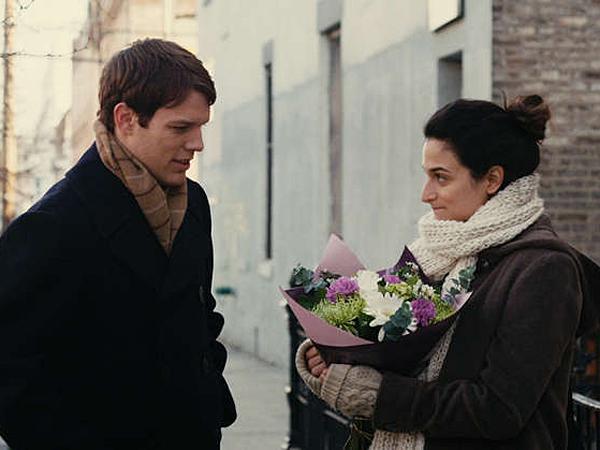‘Obvious Child’ is a clever abortion rom-com that’s way more than the sum of its parts
Auteur: Michael-Oliver Harding
In Canada, we have the late Dr. Henry Morgentaler to thank for fast-tracking our country’s pro-choice legislative battles. Sadly, the climate remains much more polarized south of the border, where women’s rights are still very much under attack. The latest case in point? A recent U.S. Supreme Court ruling rejecting a Massachusetts proposal for a “buffer zone” that would have protected women entering abortion clinics from the throngs of crazed, Westboro Baptist-esque extremists shouting obscenities at them from the sidewalk. Yep, religious zealotry is still alive and kicking in 2014.
So it shouldn’t come as a shocker that few Hollywood films in the last 30 years have bothered with honest, realistic depictions of this political hot potato – until Obvious Child. And while first-time director and co-writer Gillian Robespierre has justly received heaps of praise for her hilarious feature, you can’t quite disassociate the handful of high-profile U.S. critics who’ve dismissed the film from the country’s chronic discomfort with terminated pregnancies (New Yorker critic Richard Brody argued the film “exuded self-congratulatory complacency with its blue-state high-fiving”)…
But let’s put aside all the bloated rhetoric for a minute to focus on the film itself – an endearing, offbeat portrait of an aspiring Brooklyn comic (Jenny Slate from Kroll Show and Parks and Recreation) on the verge of losing her job selling “non-imperialist books” and still reeling from the shock of being “dumped up with.” Donna Stern is one of those witty, foulmouthed, only mildly self-destructive twentysomethings whose daily mishaps – from the mundane to the meaningful – provide fresh fodder for her on-stage routines. So when she winds up preggers after a boozy one-night stand, there’s no hesitation in Donna’s mind about ordering an abortion – and tapping into the anxiety and mixed emotions that come with it for her next stand-up skit. Obvious Child works as a charming, occasionally raunchy rom-com because the writing never goes down the predictable path of excusing or justifying its funny lady’s behaviour. Nightlife.ca recently spoke with Robespierre about the sad state of rom-coms, Fast Times at Ridgemont High and flatulence. Jake Lacy and Jenny Slate in Obvious Child
Jake Lacy and Jenny Slate in Obvious Child
1. Obvious Child's female creators developed the project because they no longer recognized themselves in Katherine Keigl-like romantic comedy rubbish.
“My favourite genre was feeling a little static. I no longer felt the connection to the leading women in these movies; they weren’t that funny or empathetic to me. We just really wanted to have a leading lady that felt more authentic and we sought a tone for all the characters in the movie that felt like real people, but still entertaining and funny.”
2. Nevertheless, Robespierre finds solace in a recent spate of films and TV shows.
“Audiences are hungry and ready to connect with characters they recognize, that are fun and authentic, and I don’t think that means creating unconventional characters. Donna is very conventional, just a regular human being. When I think of GIRLS, Broad City, Orange is the New Black, Mad Men, Appropriate Behavior – I can relate to the characters in these projects going through a lot of self-sabotaging behaviour.”
3. Robespierre referenced the abortion scene in Fast Times at Ridgemont High (1982) all the time in the early stages of developing Obvious Child.
“That movie was 30 years ago and it showed a safe abortion. I can’t recall a movie after that where the abortion procedure was safe. Many movies since have featured abortions and the many outcomes that can occur with an unplanned pregnancy, like in Dirty Dancing. Penny’s is a botched abortion, but Jennifer Grey’s character comes in and saves the day. We felt that side of the story had been exhausted; we wanted to tell the other side. One which is rarely told in our culture, even though millions of women have faced abortions.”
4. Having screened the film in the Netherlands, the U.K. and Canada, where women’s rights aren’t under attack with the same virulence, she was happy to find audiences still connecting with Donna’s experience.
“We have screened in Rotterdam, the U.K. and now Canada, where the legislation is a lot different, but I think there’s still a connection to the story. The reality is that millions of women do face unplanned pregnancies each year. Each story and experience is different – the one we wanted to tell was one in which Donna’s experience was safe and free of shame, and I totally understand why organizations such as Planned Parenthood are excited to get the story out there because [American] culture definitely suppresses that choice.”
5. She has a very simple explanation for why Donna has a propensity for bodily humour, calling out her one-night stand during an embarrassing moment of…involuntary flatulence.
“Farts are funny – full stop.”
Obvious Child
Now in theatres











